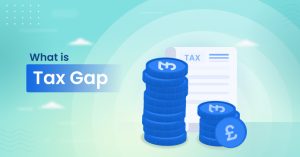During the lifetime of the partnership, there are times when new partners join and existing partners leave or the partners reorganise and agree to a new profit-sharing ratio. All these dynamics cause partners to either acquire more interest or lose it.
Have you ever wondered if you need to pay capital gains taxes on the difference between when acquired versus disposing of your share in partnership? Well, now we know! In general terms, you are holding an asset (if you have an interest in a partnership) any profits from selling CGT property will result in higher tax rates. However, this isn't always true because sometimes these transactions happen within partnerships where both buying and reorganizing can create additional liable parties who may face higher charges depending on how they structured their businesses beforehand (i.e., sole trader vs LLP).
Interest in a partnership can be broken down into two categories: capital and management.
- Management interests are typically determined by how much right each partner has to manage the company's assets,
- Management interests are typically determined by how much right each partner has to manage the company's assets,
- Capital stakes usually depend on what financial commitment was made when entering into this type of agreement with other involved parties, such as themselves or an organization that would represent them collectively (e.g., family members).
Situations where capital gain arises in a partnership
The disposal of any business partnership asset can be a complicated process. In order to dispose of your share, you have several options available such as retirement from the agreement and acquiring interest through reorganisation or buying out other partners' shares when they leave with their original allocation intact until there is only one remaining investor left in an organisation which has been bought by someone outside its original stakeholders’ group.
You might also wish for new blood to come into join forces so that everything doesn't crumble due to wounds caused by conflict over leadership roles during times where people were unsure about what direction things should go next.
This is not only the end, Capital Gains are also chargeable whenever business assets such as machinery, vehicles etc. are disposed of from your partnership business. In such cases as well, partners are required to calculate their share of capital gain and pay taxes.
Calculation of capital gains
So if you’re a business owner, what do I need to know about capital gains taxes?
The short answer is that it can be complicated.
When profits from your partnership are passed on as personal income by all of its members instead of being taxed only within the company itself—as would normally happen with any other type or form Shareholders' Draws etc., then those who receive payment will have their own tax liabilities determined based upon how much they were paid out in connection therewith.
You can find out the capital gains tax you owe by using our calculator here:
Tax return
Partnerships must calculate their own chargeable gains on disposals of partnership assets, based on the share they received from each disposal proceed and acquisition costs.
Partners must include this CGT liability to tax returns themselves personally so it's important that you are aware of what is involved with claiming reliefs like capital losses or annual exemptions according to your personal circumstances as an individual partner before we get into any further details here! For example, if I sell my car for £10k after reselling two other cars at a loss then say no more than 20% would be exempt under UK law.
Conclusion
So there you have it. Your complete guide to understanding and reducing your capital gains tax liability from partnership company profits. Of course, this is a lot to take in, so don’t hesitate to get in touch with us if you need help sorting it all out. In the meantime, start saving today for that inevitable day when the tax man comes knocking!













